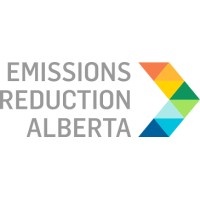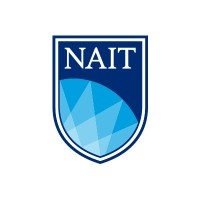
Closed
ERA — 2025 Industrial Transformation Challenge
Last Update: December 2, 2025
AB, Canada
Funding innovative technologies for Alberta's industrial transformation
Grant and Funding
At a glance
Funding available
Financing goals
Reduce the ecological footprint
Eligible Funding
- Maximum amount : 15,000,000 $
- Minimum amount : 500,000 $
- Up to 50% of project cost
Timeline
- Receipt of requests is now closed
Eligible candidates
Eligible Industries
- Agriculture, forestry, fishing and hunting
- Mining, quarrying, and oil and gas extraction
- Utilities
- Manufacturing
- Professional, scientific and technical services
- Administrative and support, waste management and remediation services
- Educational services
Location
- Alberta
Legal structures
- Non-profit
- Public or Parapublic institution
- For-profit business
- Sole proprietorship
- Non-financial cooperative
Annual revenue
- All revenue ranges
Organisation size
- All organization sizes
Audience
- Indigenous Peoples
Non-profit candidates
Sector of operation
- Higher Education
- Research
- Environment
- Economic, Social and Community Development
- Business Associations
Target groups
- Indigenous peoples
- Rural / Remote communities
- Business owners / entrepreneurs
- Nonprofits / charities
- Academia / students
Revenue structures
- All structures
Scope
- Municipal
- Provincial
- National
- International
Overview
The ERA 2025 Industrial Transformation Challenge offers up to $65 million to support technology scale-up, pilot demonstration, and first-of-kind projects that drive economic competitiveness and environmental sustainability in Alberta’s industrial sectors. Eligible activities include field testing, demonstration, and commercial deployment of innovative solutions for emissions reduction and broader environmental benefits.
Activities funded
- Piloting and demonstrating new technologies that enhance environmental sustainability in Alberta's industrial and natural resource sectors.
- Implementing first-of-kind projects that deliver transformative solutions for emissions reduction, water management, soil remediation, reduced land use, or air pollutant reduction.
- Collaborative technology development between industry, research organizations, and other partners to scale up innovative solutions in an operational environment.
- Demonstrating clean technologies with a clear path to emissions reduction in industrial or natural resource operations.
Examples of admissible projects:
$ 99,000
Launching a solar panel system on a general partnership’s new warehouse
$ 90,000
Developing a mobile mental health counselling service for youth
$ 38,500
Launching a digital literacy training program for seniors and immigrants
$ 47,000
Refitting a local café for barrier-free access and inclusive amenities
$ 60,000
Upgrading bakery production lines using eco-friendly Canadian equipment
$ 73,000
Adding new cold storage capabilities to a food distribution co-operative
Eligibility
- The applicant may be an innovator, technology developer, industrial facility owner or operator, industrial association, small or medium-sized enterprise (SME), research and development organization, university, not-for-profit organization, government research lab, or an individual.
- The proposed project must be piloted, demonstrated, or deployed in Alberta, or demonstrate direct economic benefit to the province.
- The project must involve the scale-up, pilot demonstration, or first-of-kind commercial implementation of technology.
- The project must provide environmental benefits relevant to Alberta's industrial landscape, such as emissions reduction, improved water management, soil remediation, reduced land use or disturbance, or reduction of air pollutants.
- Projects must culminate in a technology demonstration in a relevant operational environment (not standalone R&D or feasibility studies).
Who is eligible?
- Innovators
- Technology developers
- Industrial facility owners and operators
- Industrial associations
- Small and medium-sized enterprises (SMEs)
- Research and development organizations
- Universities
- Not-for-profit organizations
- Government research laboratories
- Individuals
Eligible expenses
- Scaling expenses for technologies and on-site demonstration in an operational environment.
- Purchase and installation of equipment necessary for the initial deployment of innovative technologies.
- Costs related to the design, construction, and operation of demonstration solutions or first commercial implementations.
Eligible geographic areas
- Projects must be piloted, demonstrated, or deployed in Alberta, or show direct economic benefit to the province of Alberta.
Selection criteria
- Projects will be selected through a competitive, independent, and transparent review process conducted by experts in science, engineering, business development, commercialization, financing, and GHG quantification, overseen by a Fairness Monitor.
How to apply
- Step 1: Review Program DocumentationRead the Call for Expressions of Interest Guidelines and related documents provided by ERA.
- Ensure your project aligns with the program objectives and technology requirements.
- Step 2: Prepare an Expression of Interest (EOI)Use the Expression of Interest Template provided by ERA.
- Outline the project's objectives, technology readiness, potential environmental benefits, and compatibility with emissions reduction pathways in Alberta.
- Prepare a summary of project partners and consortium members, if any.
- Compile information on eligible expenses and project costs.
- Step 3: Submit Expression of InterestSubmit the completed EOI and supporting materials through ERA’s application platform before the deadline: Thursday, June 12, 2025, 5 p.m. MDT (UTC-6).
- Ensure all required information and documentation is included in your submission, as late or incomplete applications will not be accepted.
- Step 4: Shortlisting NotificationIf selected, receive a request from ERA in July 2025 to submit a Full Project Proposal (FPP).
- Step 5: Submit Full Project Proposal (if shortlisted)Prepare a detailed Full Project Proposal based on guidance from ERA.
- Provide additional technical, financial, and operational details as required for comprehensive review.
- Submit the FPP by the deadline communicated by ERA.
- Step 6: Evaluation and Board ReviewERA's team of experts will review and assess proposals based on competitiveness, innovation, and alignment with program goals.
- Independent assessment overseen by a Fairness Monitor.
- Step 7: Funding Approval and Project AnnouncementERA’s Board of Directors makes final funding decisions in December 2025.
- Successful projects are announced in January 2026.
Additional information
- Expressions of Interest (EOIs) must clearly demonstrate technology compatibility with emissions reduction pathways in Alberta.
- Partnerships with post-secondary institutions, Indigenous communities, and co-operative organizations are encouraged to strengthen applications.
- A free, hour-long online webinar is offered for prospective applicants prior to the submission deadline.
- Submissions are assessed by independent experts and overseen by a Fairness Monitor.
Apply to this program
Frequently Asked Questions about the ERA — 2025 Industrial Transformation Challenge Program
Here are answers to the most common questions about the ERA — 2025 Industrial Transformation Challenge. This section explains what the program is, how much funding is available, eligibility requirements, application deadlines, and other important details to help you determine if this grant is right for your business.
What is the ERA — 2025 Industrial Transformation Challenge?
How much funding can be received?
Who is eligible for the ERA — 2025 Industrial Transformation Challenge program?
What expenses are eligible under ERA — 2025 Industrial Transformation Challenge?
Who can I contact for more information about the ERA — 2025 Industrial Transformation Challenge?
Where is the ERA — 2025 Industrial Transformation Challenge available?
Is the ERA — 2025 Industrial Transformation Challenge a grant, loan, or tax credit?
Apply to this program
More programs like this

Grant and FundingClosed
Aquatic Habitat Restoration Fund (AHRF)
Supports Indigenous-led aquatic habitat restoration in Western Canada

Grant and FundingOpenClosing Soon
Capital Retrofits
Funding for non-emitting industrial retrofits reducing energy use and emissions

Grant and FundingOpenClosing Soon
Energy Management Information Systems (EMIS)
Funding for systems using energy data to reduce waste and costs

Loans and Capital investmentsOpen
Business Scale-up and Productivity (BSP) in the Prairie provinces
Repayable support for prairie high-growth business scale-up

Grant and FundingOpen
Alberta Carbon Capture Incentive Program (ACCIP)
Supports carbon capture projects for emissions reduction in Alberta

Partnering and CollaborationGrant and FundingOpenClosing Soon
Genomics Data Connect: Accelerating Agriculture Innovation
Supports collaborative genomics and AI research using Alberta agricultural datasets

Grant and FundingClosed
Women in STEM Scholarship
Supports Alberta women pursuing studies in underrepresented STEM fields

Partnering and CollaborationGrant and FundingClosed
Genomic Innovations: Energy and Environmental Solutions
Supports genomics-driven solutions for energy and environmental sectors

Researchers And FacilitiesPartnering and CollaborationGrant and FundingClosed
Project Seed Funding in Grid Innovation
Supports Alberta SMEs advancing innovations in energy grid modernization

Grant and FundingClosed
Alberta Agricultural Societies Program
Funding for agricultural societies to repair infrastructure
Sign up to our platform to access the ERA — 2025 Industrial Transformation Challenge information sheet for free
Get access to 10,000+ programs, practical guides, personalized alerts, and an AI assistant to support your grant applications.